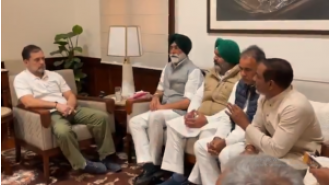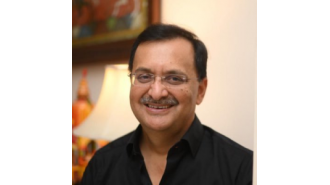What is the main issue for LGBT+ individuals in the world of football?
The sport still has a ways to go, but local inclusive clubs are successfully introducing it to more LGBTQ+ communities.

Have you ever stopped to think about LGBTQ+ representation in men's football? Does it bring to mind discouraging statistics about homophobia in stadiums or the concerning lack of LGBTQ+ players in the professional game? While these are important issues, they only represent a small portion of the LGBTQ+ community in football. In fact, at the grassroots level, there has been a significant increase in participation over the last twenty years, thanks to organizations like The Gay Football Supporters Network and the London Unity League.
However, despite the growth of inclusive football, many LGBTQ+ teams choose not to play in these leagues. This raises the question - why? And when we try to dig deeper, we are faced with even more complex questions about the role these clubs play in their communities. Is their purpose to provide a safe space for LGBTQ+ individuals to play, regardless of their skill level? Or is it to demonstrate that sexual orientation has no impact on a player's ability?
To better understand the challenges and impact of grassroots, inclusive football, we spoke with committee members from two London clubs who have taken different paths. One of these clubs is Charlton Invicta, represented by Gary Ginnaw. Despite coming from different backgrounds, both playing in different leagues (the LUL and the FA pyramid), Gary and his colleagues Chris Threadgold and Will Oster from the London Falcons, share a common experience. They all found a sense of belonging and acceptance in their inclusive football clubs.
They are grateful to their teams for helping them feel confident to play as their true selves. And the role of the LUL in building the inclusive football community in London cannot be underestimated. The post-game camaraderie between teams, something unique to the LUL according to Ginnaw, is evidence of the strong bond within this community. However, this isolation also led to a fear that perhaps these clubs were not doing enough to spread their message of inclusion beyond their own community.
This concern was echoed by Oster, who is the chair of the Falcons. He explains, "We started to question ourselves - how much are we really promoting inclusion if we only interact with our own community? Do we need to go out and spread this message?" This realization was one of the driving forces behind the Falcons' decision to enter the FA pyramid leagues, where they could interact with teams who may not have any connection to the LGBTQ+ community.
Similarly, Ginnaw, in his role at Invicta, also had these conversations in South East London a few years later. He reflects, "We wanted to play in an FA affiliated, Sunday league and put ourselves out there in an environment that most players, especially LGBTQ+ players, are not familiar with. We believed this would send a powerful message." Motivated by a desire to give LGBTQ+ individuals exposure in traditional football communities, prove that sexual orientation is not a barrier to sporting ability, and promote the message that football is for everyone, both clubs made the decision to play in local FA pyramid leagues.
Their experiences have been mixed. The Falcons have left the safety of the inclusive football nest and now play in the Wimbledon District Football League. This move has proven to be successful for them, as their communications officer Chris Threadgold proudly shares, "We have a great mix of talented players from the queer community and supportive allies. Just recently, we won an FA trophy for the first time, and this has brought us some positive attention within our leagues. It shows that regardless of your sexuality, you can play and be successful in football."
Buoyed by their achievements, Threadgold believes that the club should continue aiming higher in the FA pyramid. He says, "As a one-team club, every time we move up in our FA affiliated pyramid, we have the opportunity to grow the game, promote our message at higher levels, and bring attention to the issues faced by our community in football." It is through these efforts that the Falcons and other inclusive clubs hope to create a more diverse and accepting environment in the world of men's football.
As we reflect on the presence of LGBTQ+ individuals in men's football, certain thoughts may come to mind. Perhaps we are reminded of alarming statistics on homophobic abuse in stadiums or the concerning lack of representation in professional leagues. However, it's important to note that these issues only affect the top 1% of players. At the amateur level, there has been a significant increase in participation over the past two decades. This can be attributed to the efforts of organizations like The Gay Football Supporters Network and the London Unity League, who have been organizing nationwide competitions.
Despite this progress, there are still many inclusive football teams that choose not to participate in these leagues. This begs the question - why? And when we try to understand the reasons behind this, we are inevitably led to deeper questions about the role these clubs play in their communities. Is the main goal of an inclusive club to provide a safe space for LGBTQ+ individuals to play football regardless of their ability? Or is it to showcase that sexual orientation has no bearing on a player's skills? To get some insight into these questions, we spoke with committee members from two London clubs that have taken different paths.
One of these clubs is Charlton Invicta, represented by Gary Ginaw. Despite coming from different backgrounds - with Invicta playing in the London Unity League and the FA Pyramid - Gary shares a common experience with Chris Threadgold and Will Oster from the London Falcons. All three of them found a sense of belonging and acceptance in their inclusive football teams, something they had been searching for in other clubs. They are grateful to their respective teams for giving them the confidence to play football as their true selves. The role of the London Unity League in building a diverse and inclusive football community cannot be ignored. The post-game drinks and camaraderie between opposing teams, as described by Gary, is something that is unique to the LUL. However, this sense of comfort within their own league also sparked a fear that perhaps these clubs were not doing enough for their communities.
As the chair of the Falcons, Will Oster shares that they also began to question whether they were truly promoting inclusion if they only played within their own community. They felt the need to spread their message to a wider audience. This led them to enter the FA Pyramid, where they could interact with teams that may not have any connection to the LGBTQ+ community. Similarly, Gary from Invicta recounts having similar conversations in South East London, a couple of years later. He saw it as a powerful opportunity to play FA-affiliated Sunday league football and immerse themselves in an environment that most LGBTQ+ players were not accustomed to.
Driven by a desire to expose the LGBTQ+ community to traditional footballing circles, prove that sexual orientation does not hinder sporting ability, and send a powerful message that football is for everyone, both clubs decided to join local FA Pyramid leagues. The Falcons, in particular, have had great success since leaving the safety of the inclusive football nest. They now play in the Wimbledon District Football League, and their Communications Officer, Chris Threadgold, couldn't be prouder. He shares that their team consists of talented players from the queer community, as well as strong allies. They recently won an FA trophy for the first time, gaining attention and recognition in their leagues. This only goes to show that regardless of one's sexuality, they can succeed in football.
Their success has motivated them to aim higher in the FA pyramid, with the goal of raising awareness about LGBTQ+ issues in football and giving their community the representation and exposure they deserve. As Chris puts it, climbing the FA pyramid as a one-team club is an excellent opportunity for them to continue growing the game and advocating for their cause at higher levels.










